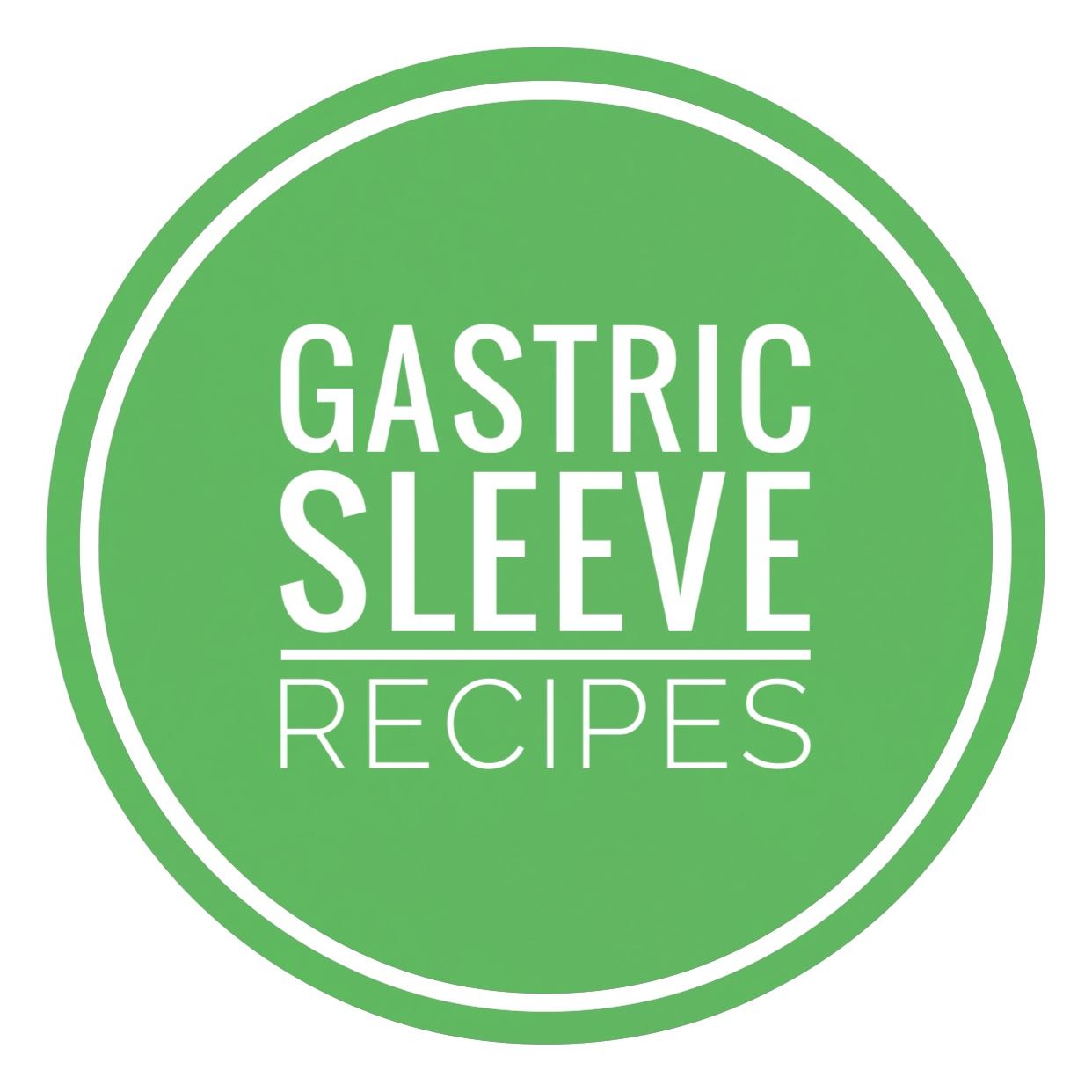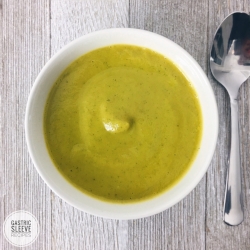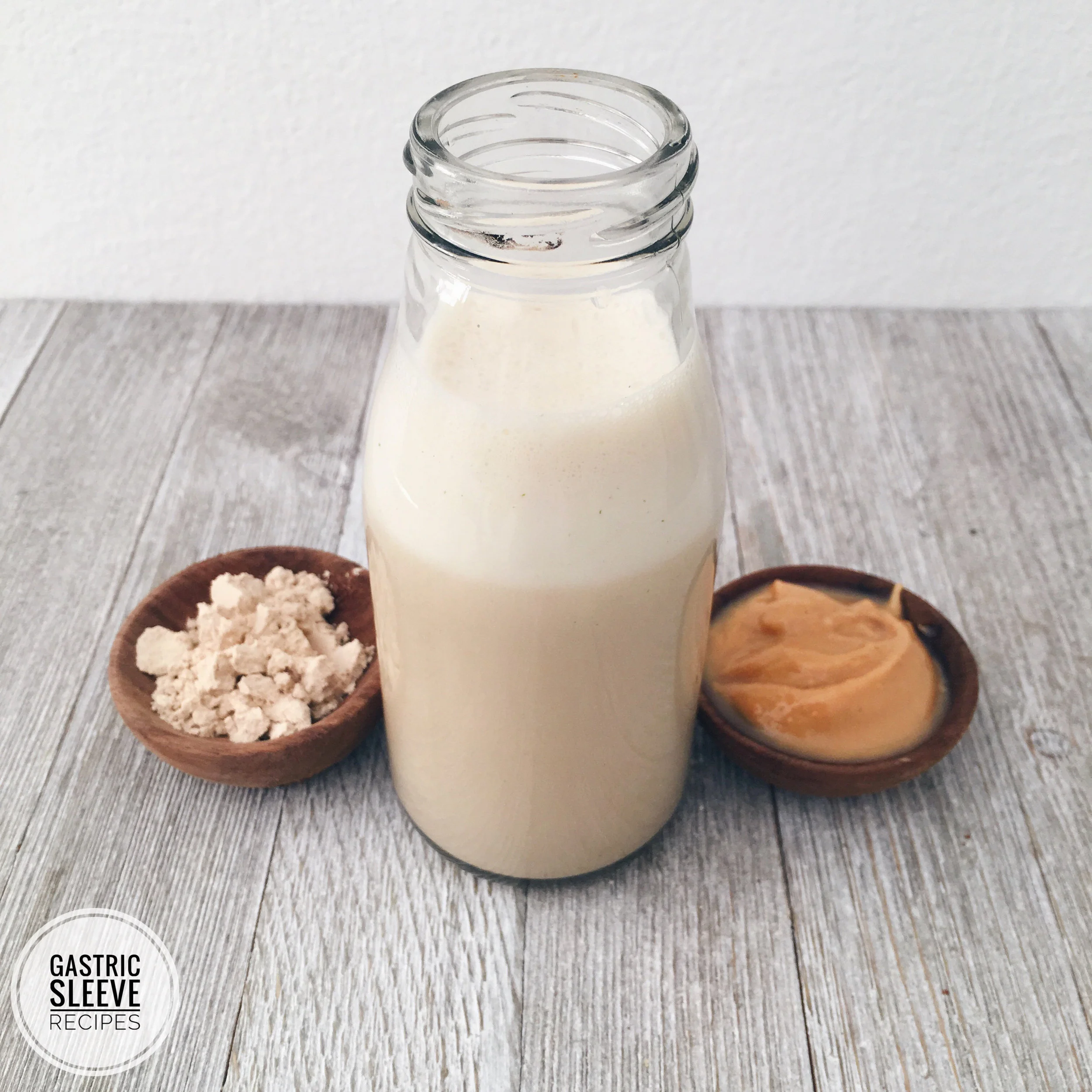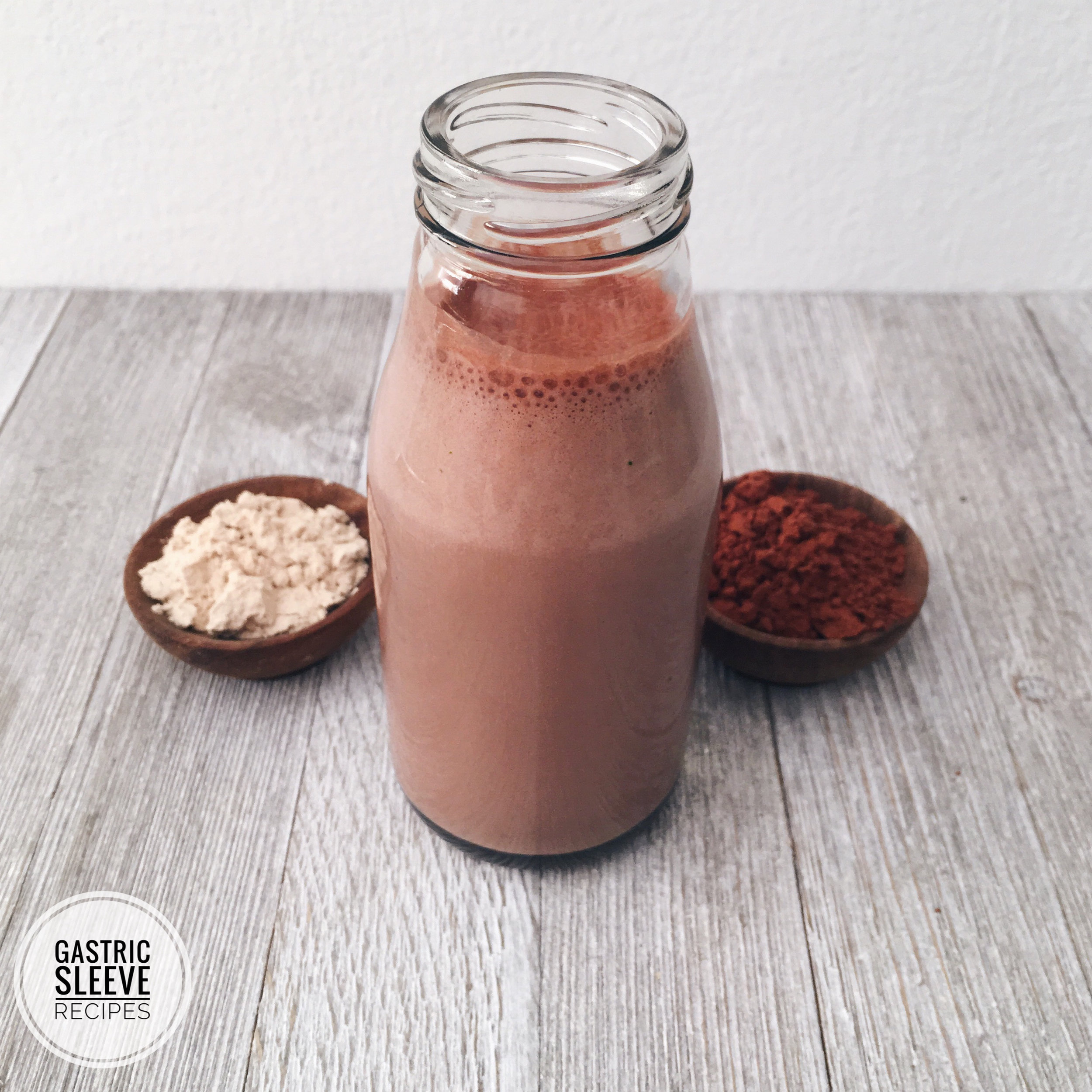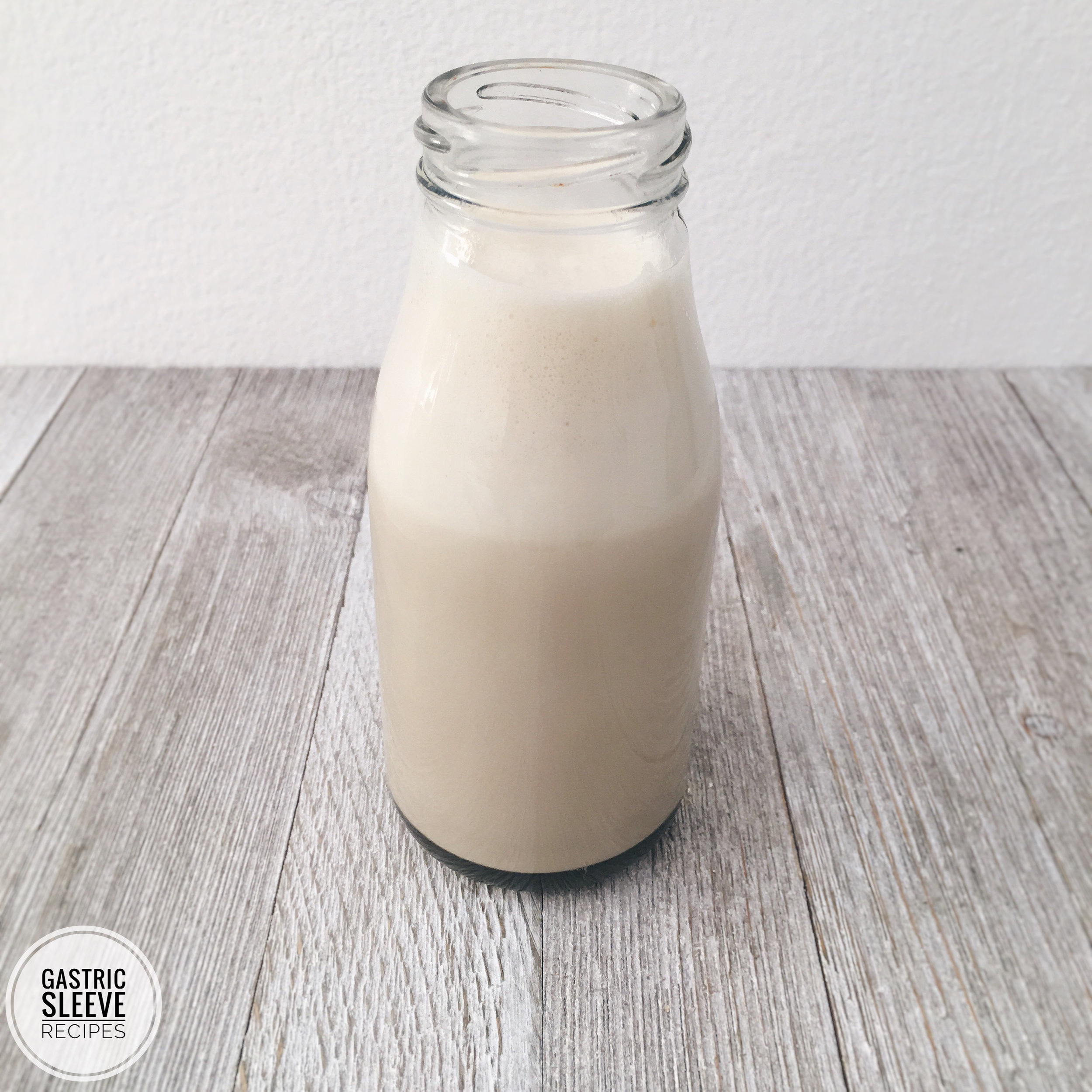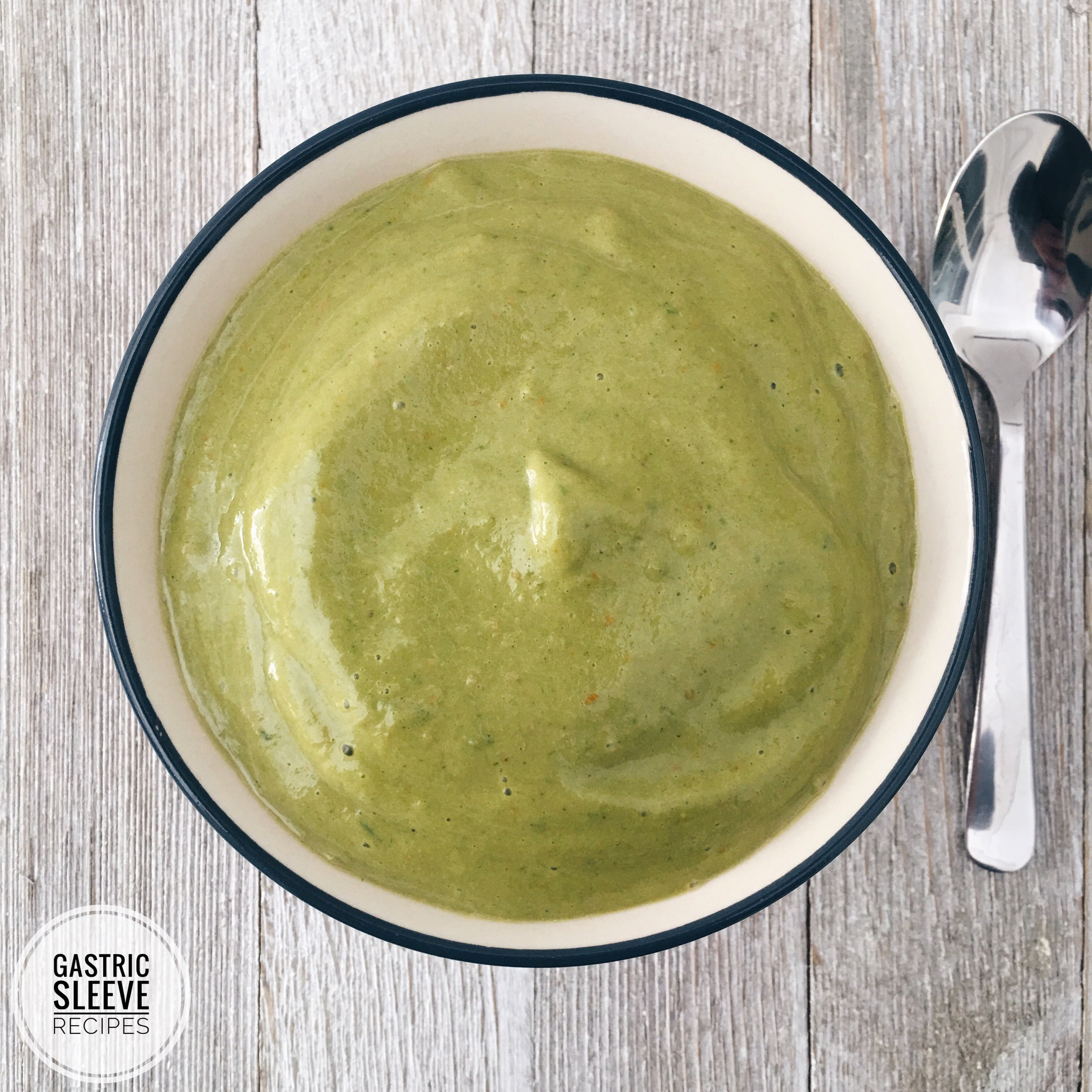POST-OP STAGE 2: FULL LIQUIDS
Description summary: This meal plan is designed for patients that are at least 6 days out of surgery. Just like in the previous stage, it consists of only liquids, but we add thicker textures like those of protein shakes and soups. The plan is designed for you to drink 8 ounces of liquids every 2 hours, adding up to a total of 64 ounces per day. The least recommended amount of daily liquids is 48 ounces. Click on the protein shakes and soups to see the recipes.
Duration: about 9 days
Suggested daily meal schedule: 8 ounces of liquids every 2 hours
Goals:
- Consume 60 grams of protein.
- Introduce supplements.
- Consume 48-64 ounces of liquids per day.
AVERAGE NUTRITION FACTS PER DAY:
- Calories 725
- Protein 60 grams
- Carbs 65 grams
- Fat 25 grams
Note: Nutrition facts may vary depending on which exact protein drinks, juices, and/or other liquids you consume during this stage.
MONDAY / DAY 1
- 6-8 am: Vanilla Protein Shake (8 oz)
- 8-10 am: Water (4 oz) + Low sugar electrolyte drink (4 oz)
- 10-12 pm: Vegetable soup (4 oz) + Diluted fruit juice or undiluted coconut water (4 oz)
- 12-2 pm: Vanilla Protein Shake (8 oz)
- 2-4 pm: Water (4 oz) + Sugar free Jell-O or Popsicle (4 oz)
- 4-6 pm: Vegetable soup (4 oz) + Diluted fruit juice or undiluted coconut water (4 oz)
- 6-8 pm: Vanilla Protein Shake (8 oz)
- 8-10 pm: Tea, unseetened and decaf (4 oz) + Almond milk (4 oz)
TUESDAY / DAY 2
- 6-8 am: Peanut Butter Protein Shake (8 oz)
- 8-10 am: Water (4 oz) + Low sugar electrolyte drink (4 oz)
- 10-12 pm: Vegetable Soup (4 oz) + Diluted fruit juice or undiluted coconut water (4 oz)
- 12-2 pm: Peanut Butter Protein Shake (8 oz)
- 2-4 pm: Water (4 oz) + Sugar free Jell-O or Popsicle (4 oz)
- 4-6 pm: Vegetable Soup (4 oz) + Diluted fruit juice or undiluted coconut water (4 oz)
- 6-8 pm: Peanut Butter Protein Shake (8 oz)
- 8-10 pm: Tea, unseetened and decaf (4 oz) + Almond milk (4 oz)
WEDNESDAY / DAY 3
- 6-8 am: Chocolate Protein Shake (8 oz)
- 8-10 am: Water (4 oz) + Low sugar electrolyte drink (4 oz)
- 10-12 pm: Vegetable Soup (4 oz) + Diluted fruit juice or undiluted coconut water (4 oz)
- 12-2 pm: Chocolate Protein Shake (8 oz)
- 2-4 pm: Water (4 oz) + Sugar free Jell-O or Popsicle (4 oz)
- 4-6 pm: Vegetable Soup (4 oz) + Diluted fruit juice or undiluted coconut water (4 oz)
- 6-8 pm: Chocolate Protein Shake (8 oz)
- 8-10 pm: Thai Carrot Soup (4 oz) + Almond milk (4 oz)
THURSDAY / DAY 4
- 6-8 am: Peanut Butter Protein Shake (8 oz)
- 8-10 am: Water (4 oz) + Low sugar electrolyte drink (4 oz)
- 10-12 pm: Thai Carrot Soup (4 oz) + Diluted fruit juice or undiluted coconut water (4 oz)
- 12-2 pm: Peanut Butter Protein Shake (8 oz)
- 2-4 pm: Water (4 oz) + Sugar free Jell-O or Popsicle (4 oz)
- 4-6 pm: Thai Carrot Soup (4 oz) + Diluted fruit juice or undiluted coconut water (4 oz)
- 6-8 pm: Peanut Butter Protein Shake (8 oz)
- 8-10 pm: Tea, unseetened and decaf (4 oz) + Almond milk (4 oz)
FRIDAY / DAY 5
- 6-8 am: Vanilla Protein Shake (8 oz)
- 8-10 am: Water (4 oz) + Low sugar electrolyte drink (4 oz)
- 10-12 pm: Thai Carrot Soup (4 oz) + Diluted fruit juice or undiluted coconut water (4 oz)
- 12-2 pm: Vanilla Protein Shake (8 oz)
- 2-4 pm: Water (4 oz) + Sugar free Jell-O or Popsicle (4 oz)
- 4-6 pm: Thai Carrot Soup (4 oz) + Diluted fruit juice or undiluted coconut water (4 oz)
- 6-8 pm: Vanilla Protein Shake (8 oz)
- 8-10 pm: Tea, unseetened and decaf (4 oz) + Almond milk (4 oz)
SATURDAY / DAY 6
- 6-8 am: Chocolate Protein Shake (8 oz)
- 8-10 am: Water (4 oz) + Low sugar electrolyte drink (4 oz)
- 10-12 pm: Creamy Sundried Tomato and Spinach Soup (4 oz) + Diluted fruit juice or undiluted coconut water (4 oz)
- 12-2 pm: Chocolate Protein Shake (8 oz)
- 2-4 pm: Water (4 oz) + Sugar free Jell-O or Popsicle (4 oz)
- 4-6 pm: Creamy Sundried Tomato and Spinach Soup (4 oz) + Diluted fruit juice or undiluted coconut water (4 oz)
- 6-8 pm: Chocolate Protein Shake (8 oz)
- 8-10 pm: Tea, unseetened and decaf (4 oz) + Almond milk (4 oz)
SUNDAY / DAY 7
- 6-8 am: Peanut Butter Protein Shake (8 oz)
- 8-10 am: Water (4 oz) + Low sugar electrolyte drink (4 oz)
- 10-12 pm: Creamy Sundried Tomato and Spinach Soup (4 oz) + Diluted fruit juice or undiluted coconut water (4 oz)
- 12-2 pm: Peanut Butter Protein Shake (8 oz)
- 2-4 pm: Water (4 oz) + Sugar free Jell-O or Popsicle (4 oz)
- 4-6 pm: Creamy Sundried Tomato and Spinach Soup oz) + Diluted fruit juice or undiluted coconut water (4 oz)
- 6-8 pm: Peanut Butter Protein Shake (8 oz)
- 8-10 pm: Tea, unseetened and decaf (4 oz) + Almond milk (4 oz)
Full Description: You should continue consuming liquids only but will now be able to incorporate slightly thicker liquids with a wider variety of ingredients. We will add 60 grams of protein into your diet and begin taking supplements. This will give your digestive system time to heal properly and allow you to adjust to your new stomach/pouch.
It is important to keep in mind that one common effect the surgery is to develop new food allergies or intolerance, with the most common being dairy. Most protein supplements in the market are dairy-based, so if you start feeling sick when you add them to your diet, we would highly recommend switching to plant-based protein sources. We give out product recommendations for both of these in the section below.
Stages 1 and 2 of the post-op diet are by far the hardest. So keep in mind that once you go through them, things will only get easier. It is important, however, to be patient and stay focused on your long-term goals. The struggle for these stages does not compare to a lifetime of health and happiness. So stay strong!
Approved liquids:
- All liquids approved in Stage 1 plus:
- Low-fat or skim and lactose-free milk.
- Unsweetened soy, almond, cashew or coconut milk
- Vegetable juices. Recommended brands:
- V8 Vegetable Juice: Essential Antioxidants, Original
- Naked Juice: Blue Machine, Protein Smoothie Double Berry
- Low-fat creamy soups. (no chunks + low sodium).
- Suggested flavors: Vegetables, Carrot, Spinach.
- Protein drinks: (see vitamins and supplements section below for more information).
- Certain fruits like bananas and blueberries may be blended together with protein smoothies drinks. Nut butters can also be added (max 2 tbsp per day).
Tips and Guidelines:
- Prioritize drinking your protein first. If you are having trouble reaching the 48-64 ounce goal then prioritize the high-protein and high-calorie liquids.
- Do not drink gulps of liquids or you may experience severe discomfort.
- Do not drink carbonated drinks like soda or soda water. The carbonation creates gas and can cause severe discomfort.
- Do not drink through a straw as it may fill up your stomach with air and produce discomfort. Some patients do not experience discomfort but it is recommended to avoid it as a precaution.
- It is important to monitor your glucose (sugar) levels (especially if you are diabetic). You may at some time feel dizziness if your glucose levels fall below your recommended level. If this happens, you may consume 4 oz of diluted fruit juice and consult with your doctor if this happens often. Juice intake should not be abused and must be diluted with water always.
- All fruit juice must be diluted with water. Maximum recommended amount of fruit juice per day is 12 ounces.
- All liquids should contain no added sugars. Juices contain natural sugar from the fruits and vegetables but it is important to make sure they have no added sugars.
- All liquids should be caffeine free and not contain any other kind of stimulant (such as in energy drinks).
- Do not drink coffee, even if it is decaf. Coffee is diuretic and will work against your goal of staying hydrated. It is recommended to avoid drinking coffee for at least the first month after surgery.
- Avoid any foods that are acidic or spicy, as these may cause some discomfort or irritation.
- Buy a food scale and measuring spoons. It is very important to use the exact measurements we provide on the meal plan. Our recipes give measurements in both volume/amount and in grams so you are able to weigh everything. We use grams instead of ounces because it can be a more exact measure. The appliances that you will need are the basics of every kitchen: stove, oven, microwave, and blender.
- Do not weigh yourself more than once per week. Pick a day of the week (we recommend Wednesdays or Thursdays) and weigh yourself every week only on that day and in the morning before having liquids or food. Weighing yourself too often can create too much mental pressure.
NOTE: If you begin Stage 2 and are having trouble with full liquids then it is perfectly normal to go back to clear liquids for another day and then try again with full liquids. It is important to not push yourself to drink too much or you may provoke vomiting.
Exercise: It is recommended all patients to avoid exercise during this stage. It important to take it slow and keep in mind that you will already be losing a lot of weight through diet alone. It is important, however, to walk constantly during the day. Do not stay in bed all day or you may risk forming blood clots. Get up and walk around your house or block every 20-30 minutes to keep the blood flowing and your metabolism active. Longer-term, it is important to keep in mind that exercise is not the best way to lose weight, but rather changes in our diets. So focus on eating right and you will see the pounds come off.
Vitamins and Supplements: Vitamins and supplements will help you get the necessary nutrition during your recovery stage and over the long term too. You should begin taking them at this stage. It is recommended that you always take them with food or liquids. The required vitamins and supplements are the following:
- Multivitamins
- Take 2 chewable multivitamins per day, one with breakfast and one with dinner.
- Chewable vitamins are often more easily absorbed by the body. Make sure they are for adults and not for children.
- Recommended brand: Centrum Chewable Multivitamin/Multimineral Supplement.
- Vitamin B-Complex
- Take 1 B-Complex chewable vitamin per day with breakfast. Recommended brand: Vitafusion B Complex Gummy Vitamins.
- If you choose a different brand just make sure it contains at least 100% of your daily B-12 requirements.
- Calcium Citrate
- There are 2 different types of Calcium: Calcium Citrate and Calcium Carbonate. Make sure to take Calcium Citrate because absorbed better by the body.
- Recommended brands: Rainbow Light Calcium Citrate Chocolate Chewable, Solaray Calcium Citrate Chewable.
- Whichever brand you choose, make sure to get a total daily dose equal to 1,000 mg per day. Take half during breakfast or lunch and the other half during dinner.
- Iron
- Take during breakfast. Make sure to not take at the same time as calcium.
- The required dosage is 18 mg to 25 mg.
- Recommended brands: NutriPure Melts in Mouth Chewable Iron, BariMelts Iron + Vitamin C.
- It is recommended to take your iron supplements with a dose of Vitamin C for better absorption. The recommended brands already include some Vitamin C.
- Gallbladder pills (optional but highly recommended)
- When your body loses weight at a drastic pace, your gallbladder may be at risk of developing stones. The purpose of taking these pills is to help prevent any formation of these stones.
- Take 1 serving per day for the first 6 months. After that, you may discontinue it.
- Recommended brand: Stone Breaker Chanca Piedra (pulverize and dilute in water).
- Protein Supplements
- It is somewhat common for patients to develop dairy intolerances after surgery. Whey protein is derived from dairy, so if you are having trouble consuming these types of protein supplements, we highly suggest switching to plant-based sources. You can also start directly with plant-based sources if desired.
- All of our protein drink recipes use protein powder and other natural ingredients to boost their nutrient content and make them taste good. If you do not want to drink them, you can replace protein drinks in the meal plan with with 2 pre-made Premier Protein shakes per day of your flavor of choice. Other liquids that you can replace them with are Protein2O (whey-based) and Evolve (plant-based), just make sure to get 60 grams of protein per day.
- Recommended brands: Gold Standard 100% Plant-based (plant-based powder), Gold Standard 100% Whey (powder), Vega Clean Protein (plant-based powder), Isopure (powder), Protein2O (pre-made drink).
- If you prefer to buy another brand just make sure it meets the following nutrition requirements per serving.
- Calories: 110 to 130
- Protein: 20 to 25 grams
- Fat: No more than 7 grams
- Carbs: No more than 5 grams
- Suggested supplements schedule:
- Morning: Multivitamin, B-Complex, Iron, Gallbladder
- Lunch: Calcium citrate (half)
- Dinner: Multivitamin, Calcium citrate (remaining half)
